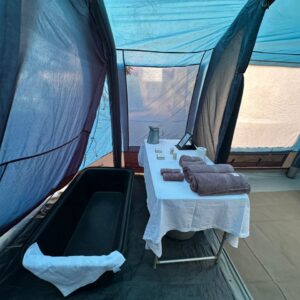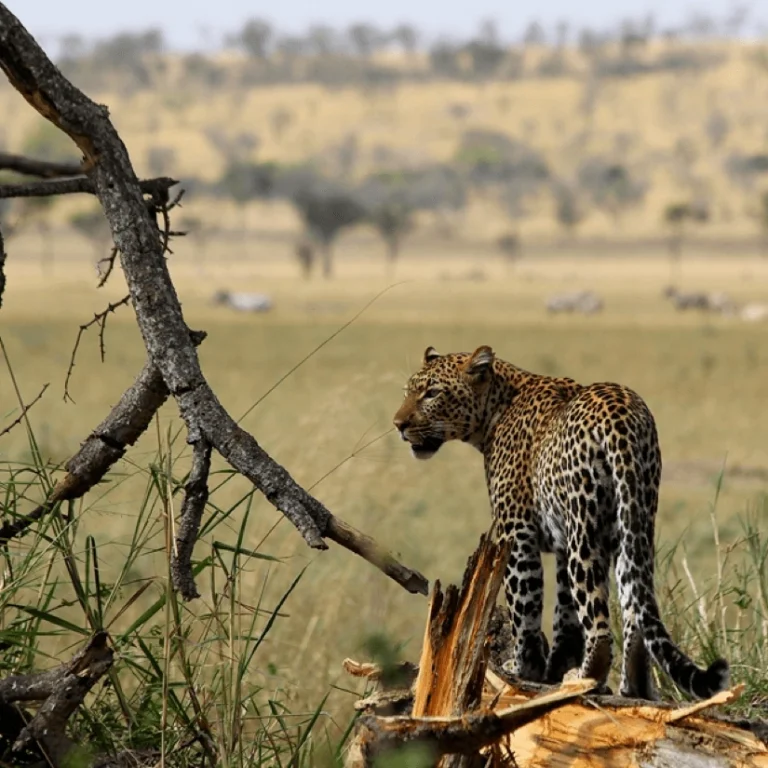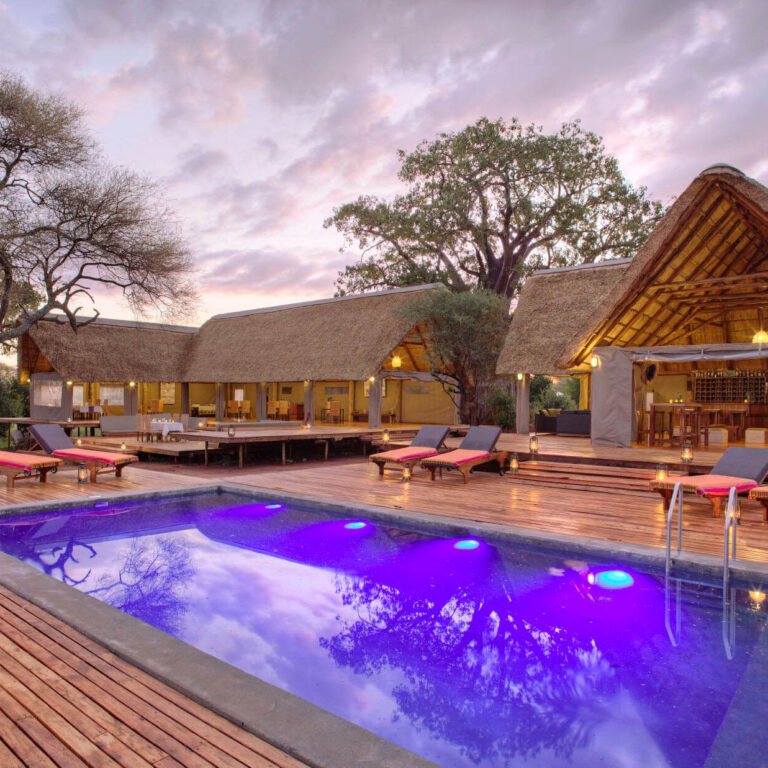Embarking on an African safari is more than just a trip; it’s a unique adventure that offers a chance to connect with nature and experience the breathtaking beauty of wildlife in their natural habitats. Choosing the right safari company can make a significant difference in the quality of your experience. Choosing an operator that is conservation-minded, with ties to the local community and well-trained guides can add up to the trip of a lifetime and also nurture nature. Planning an African safari is exciting, but choosing the right company can be overwhelming. With so many options available, how do you find the best one? Here’s a step-by-step guide to help you select the best African safari companies for your journey.
Step 1: Identify Your Safari Preferences
Before diving into the search for safari companies, take some time to consider what type of safari experience you are looking for. Are you interested in a luxury safari, a budget-friendly experience, or perhaps a family-oriented trip? Determine whether you prefer a guided tour or a mobile camping experience. Identifying your preferences early on will help narrow down your options.
Set your Budget: Safaris range significantly in price. Determine a realistic budget that encompasses accommodation, activities, transportation, and potential extras like guided bush walks or game drives. Understanding your budget will narrow down your options considerably. For example, a budget-conscious traveler might prioritize camping safaris, while a luxury traveler might prefer exclusive lodges.
Duration: How long do you want your safari to last? A shorter trip might be ideal for a quick getaway, while a longer one allows for more in-depth exploration and potentially more diverse wildlife encounters. A 5-day safari might focus on a specific region, while a 14-day trip can encompass multiple national parks.
Wildlife Interests: What specific animals or wildlife interactions are you hoping to see? Are you more interested in big cats or perhaps the vibrant birdlife? Certain regions are known for specific species, and choosing a company specializing in that area can significantly improve your chances of a rewarding experience. For instance, the Serengeti is renowned for the Great Migration, while Kruger National Park is known for its diverse big game population.
Travel Style: Are you seeking a luxurious experience with personalized service, or are you more interested in an adventurous and budget-friendly option? This might include factors like the type of accommodation (luxury lodge, tented camp, basic camp), the transportation method (4×4 vehicle, light aircraft), and the level of interaction with local communities.
Private small group Size: Do you prefer a private small group experience or a larger tour? Small groups often offer more personalized attention from guides, while larger groups provide a more social experience.
Step 2: Research Potential Companies
Once you have a clear understanding of what you want, start researching various safari companies. Look for companies that specialize in African safaris and have established a good reputation best African Safari Companies & Tour Operators. You can find potential companies through travel forums, enthusiast blogs, and social media. Pay close attention to customer reviews and testimonials, as they can provide insight into past travelers’ experiences.
Online Reviews: Check online travel platforms like TripAdvisor, and various safari-specific websites. Read reviews from previous clients, paying attention to details about the guides, the accommodations, and the overall experience. Look for patterns in the feedback to identify common strengths and weaknesses.
Company Websites: Visit the websites of potential companies. Examine their descriptions of different safari packages, their commitment to sustainability, and their ethical practices. Look for transparency in their pricing structures and detailed information about their guides and staff. Longevity & Experience: Companies with a long history of operating safaris tend to have well-trained guides, well-maintained vehicles, and efficient itineraries. A global luxury safari company, we tailor make exclusive safari itineraries for clients from every corner of the world Luxury Safari Company.
Recommendations: Seek recommendations from friends, family, or travel professionals who have experience with African safaris. Personal accounts can offer valuable insights and perspectives. In this comprehensive guide, we delve into the intricacies of running a successful travel agency specializing in African safari tours. Expert advice on how to plan the best safari holiday – from who to book with to where to go and what to pack plus, of course, where to stay.,
Step 3: Check Credentials and Experience
Ensure that the companies you are considering have the necessary licenses and permits to operate safaris in their regions. Experienced companies will often have professional guides with extensive knowledge of wildlife, local ecosystems, and cultural insights. Look for companies that have been in business for a substantial amount of time, as this often indicates reliability and quality service.
Voted #1 World’s Best Safari Company, Foot Slopes Tours and Safaris specializes in luxury Custom African Safaris and private Small-Group Classic Safaris as well as luxury India Tours. A comparison of tours should include the number of game drives and the location. For trip may include many days of travel, home visits, school visits, etc. A comprehensive checklist to help you thin out the herd and choose the most suitable safari operator for your next trip to Africa. Choosing the best African safari companies to take your safari with can make or break the experience. Use this step by step guide, it might help you out! step-by-step
Step 4: Assess Safety Standards
Safety should always be a top priority when choosing a safari company. Inquire about their safety protocols regarding wildlife encounters and health measures (like vaccinations). A responsible company will prioritize guest safety above all else. Research the safari company’s safety protocols and procedures. This includes vehicle safety, guide training, and health measures in place for travelers. A reputable company will be transparent about these practices and will prioritize the well-being of its clients while maximizing enjoyment.
Step 5: Compare Itineraries and Packages
Evaluate different itineraries to see which ones align with your safari goals. Some companies may offer more extensive packages that include various parks, whereas others may focus on specific regions. Compare what each package includes such as accommodations (Evaluate Accommodation Options plays a crucial role in your safari experience. Check what types of lodging are provided—luxury lodges, tented camps, or budget options. , meals, transportation, and guided tours. This step will help you assess the overall value for your investment.
How many days should you spend on an African safari? The average duration of our safaris is somewhere between seven and ten nights. With the pressures of the modern world, a two-week total trip duration seems to be about the norm, and, factoring in travel time, this leaves most travelers with 11-12 nights on the ground in Africa.
What is the average cost of an African safari trip? On average, a mid-range safari in East African countries like Tanzania safari prices range from $3,000 to $6,000 per person for a 7 to 10-day trip. Luxury safaris with high-end lodges, private guides, and exclusive experiences may surpass $10,000 per person.
What is the safest African country to visit for safari? Tanzania is considered to be one of the safest places in Africa to visit. The most tourist activity is generally around Serengeti National Park, the gateway which are gateways to major big game parks such as Tarangire, Serengeti, Lake Manyara, Arusha, Mount Kilimanjaro National Park, and Ngorongoro crater.
Step 6: Understand Pricing and Inclusions
Once you’ve narrowed down your options, it’s essential to understand the pricing structure. Request detailed quotes and be cautious about companies that offer prices that seem too good to be true. Ensure you know what is included in the price—some companies may have hidden fees for activities, park entry fees, or additional meals. Book with Foot Slopes Tours and Safaris trusted best African Safari Guides and company recommended for your trip.
Step 7: Ask Questions
Don’t hesitate to reach out to the companies directly with any questions or concerns. This can include inquiries about their cancellation policies, wildlife sighting guarantees, or any specific requests you may have. A company that values customer service will be responsive and willing to provide detailed information. We spoke to top operators and gathered insight from travel advisors about the best ways to safari, whether you’re dreaming up your first or your fifth. The Bespoke African Safari Company that offers personalized All-inclusive African Luxury safaris & private Small-Group Classic Safaris
Step 8: Make an Informed Decision
After gathering all the necessary information, reflect on your findings. Trust your instincts, choose an African Safari (That’s Right for You). The right safari company will not only meet your preferences and budget but also resonate with your travel intentions, ensuring a memorable African safari experience.
Choosing the best African safari company requires research, a clear understanding of your priorities, and open communication. By following these steps, you’ll be well on your way to making your safari adventure both enjoyable and unforgettable.
Contacting the Companies: Reach out to the companies for clarifications and to discuss any specific concerns you may have. Don’t hesitate to ask questions about the safari packages and the company’s commitment to ethical practices.
Booking and Payment: Choose a company that provides clear and transparent booking procedures and payment options. Ensure you understand the cancellation policies before making a final decision.
Pre-Trip Communication: Establish clear communication channels with the chosen company regarding any pre-trip information, such as visa requirements, packing lists, and meeting points.
9. Considering Sustainability and Ethical Practices:
In today’s world, ethical and sustainable tourism is increasingly important choose an ethical African Safari Experience.
Conservation Efforts: Does the company support local conservation initiatives? Does it contribute to protecting wildlife and their habitats? Look for companies that actively participate in conservation projects.
Community Involvement: How does the company support local communities? Does it employ local guides and staff? Does it contribute to the economic well-being of the region?
Environmental Impact: Assess the company’s commitment to reducing its environmental footprint. Look for companies that utilize eco-friendly practices, such as minimizing waste and conserving water.
Guide When Choosing a Safari Operator in Africa
When choosing a safari operator in Africa, consider their experience, customer reviews, and expertise in your preferred destination. Ensure they are licensed, prioritize safety, and offer ethical wildlife practices. Compare itineraries, accommodations, and inclusions for the best value. Look for knowledgeable guides, flexible options, and sustainable tourism efforts. Clear communication and transparent pricing are essential. A reputable operator enhances your safari experience, ensuring a seamless, enjoyable, and responsible adventure in Africa’s breathtaking wilderness.
Why Choose Foot Slopes Tours and Safaris As best African Safari Company
Expert Guides – Knowledgeable, experienced, and friendly safari guides.
Custom Safaris – Tailor-made itineraries to suit your preferences.
Great Reviews – Highly rated by travelers worldwide.
Local Expertise – Deep knowledge of Tanzania’s wildlife and culture.
Luxury & Budget – Offers both affordable and premium safari options.
Ethical Tourism – Committed to sustainable and responsible travel.
Safety First – Prioritizes guest safety and comfort.
Seamless Planning – Hassle-free booking and tour organization.
Diverse Destinations – Covers top parks and hidden gems.
Unforgettable Experience – Delivers lifetime safari memories.
How to Choose an African Safari that’s right for you?
When choosing the right African safari, consider your interests—wildlife, luxury, adventure, or culture. Decide on the destinations and tour operators, Tanzania Serengeti, Tarangire, Lake Manyara, Arusha National Park, Lake Eyasi, Mount Kilimanjaro, Ngorongoro crater, and Zanzibar, based on animal sightings, landscapes, and accessibility. Determine the type of experience (guided tours, family, honeymoon, budget, mid-range, and luxury camps). Safari Company Recommendations set your budget, and consider the best travel season. Research operators with good reputations and ensure sustainability practices. Choose a safari that aligns with your preferences for a memorable experience. Finally, book your trip and prepare for an unforgettable adventure.
How to Choose an Ethical African Safari Experience
To choose an ethical African safari, prioritize operators committed to wildlife conservation and local communities. Look for eco-friendly accommodations, sustainable practices, and responsible animal interactions, avoiding those that exploit or harm wildlife. Research the company’s conservation efforts and community initiatives, such as supporting local wildlife reserves and indigenous cultures. Choose safari tours that emphasize observation over exploitation, ensuring minimal environmental impact while supporting ethical tourism practices for a positive, sustainable experience.
How to Choose the Right Safari Destination
To choose the right safari destination, consider what animals and landscapes you want to experience. Tanzania are famous for the “Big Five” and the Serengeti migration. Ngorongoro, Tarangire, Lake Manyara, Arusha National Park offers luxury safaris with great unique landscapes and quieter experiences. Research the best time to visit each location for optimal wildlife sightings and accessibility. Your preferences for adventure, comfort, and budget will guide your perfect safari destination.
Where to go for your first safari in Africa
For your first safari in Africa, consider destinations like Tanzania’s Serengeti, Tarangire, Lake Manyara, Arusha National Park, Lake Eyasi, Mount Kilimanjaro, Ngorongoro crater, and Zanzibar. These regions offer iconic wildlife sightings, well-established infrastructures, and various accommodation options. Kenya and Tanzania provide a classic safari experience with the chance to see the Great Migration, offering easy access and diverse wildlife. Choose based on your preferences for adventure, accessibility, and the animals you want to see.
Serengeti National Park is the easiest and most rewarding safari destination for first-timers and budget travelers. You can see the Big Five (lions, leopards, rhinos, elephants, and buffalo), as well as cheetahs, giraffes, African wild dogs, and hundreds of bird species. Drive the park’s paved roads yourself if you’re on a budget.,
Essential Questions Before You Book an African Safari
Before booking an African safari, ask about the destination’s wildlife, the best time to visit, and the level of luxury or adventure you desire. Inquire about the safari type—guided, walking, family honeymoon, high-end/VIP, budget camping, or luxury camp—and whether the operator practices ethical wildlife conservation. Consider the trip’s duration, group size, and activities offered. Also, check the cost, inclusions, and payment policies, as well as safety measures and travel insurance options, to ensure a seamless and memorable experience.
Final Thoughts
Choosing the best African safari company is a multifaceted process that requires careful consideration of your needs and desires. By choosing a trusted safari operator, defining your vision, researching reputable companies, evaluating packages, prioritizing sustainability, and finalizing your choice, you can ensure a memorable and enriching safari experience. Remember that a well-researched and carefully planned safari contributes not only to your enjoyment but also to the preservation of Africa’s incredible biodiversity and the well-being of local communities.







